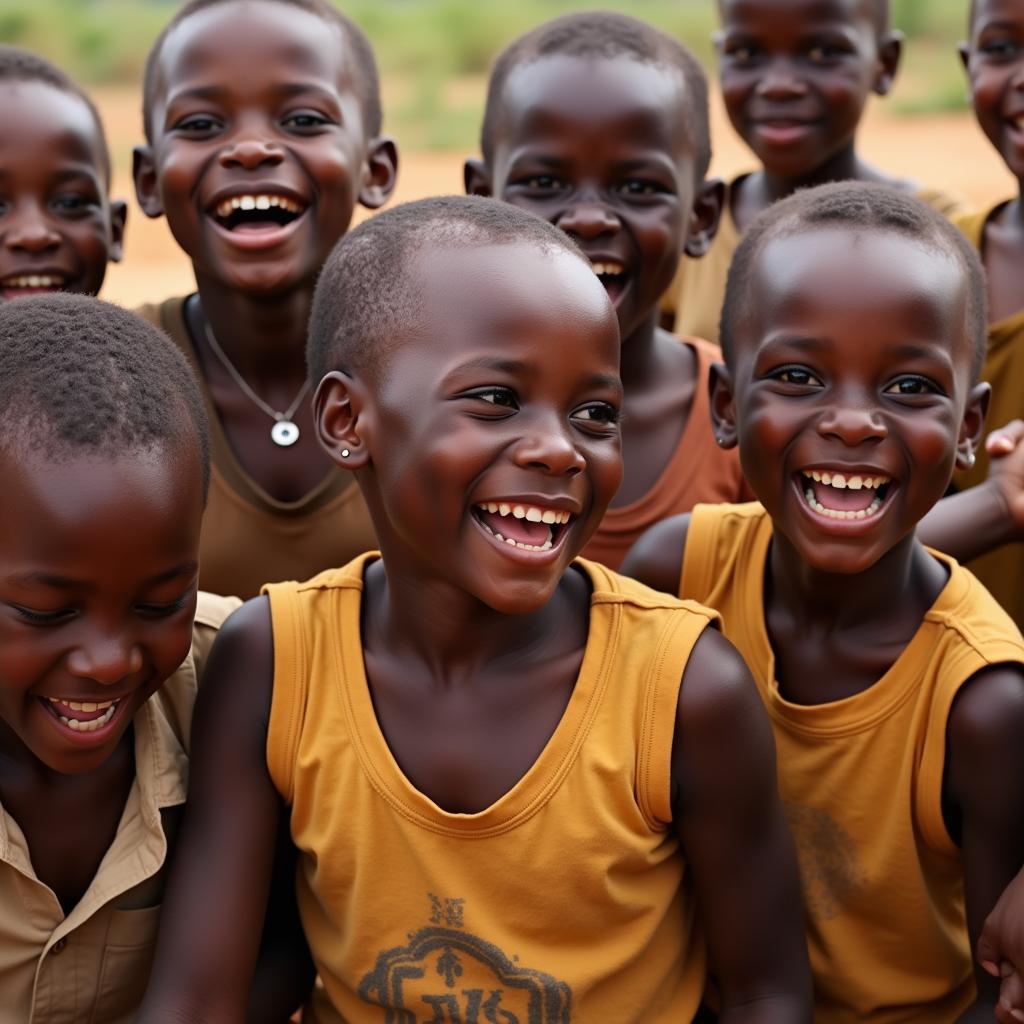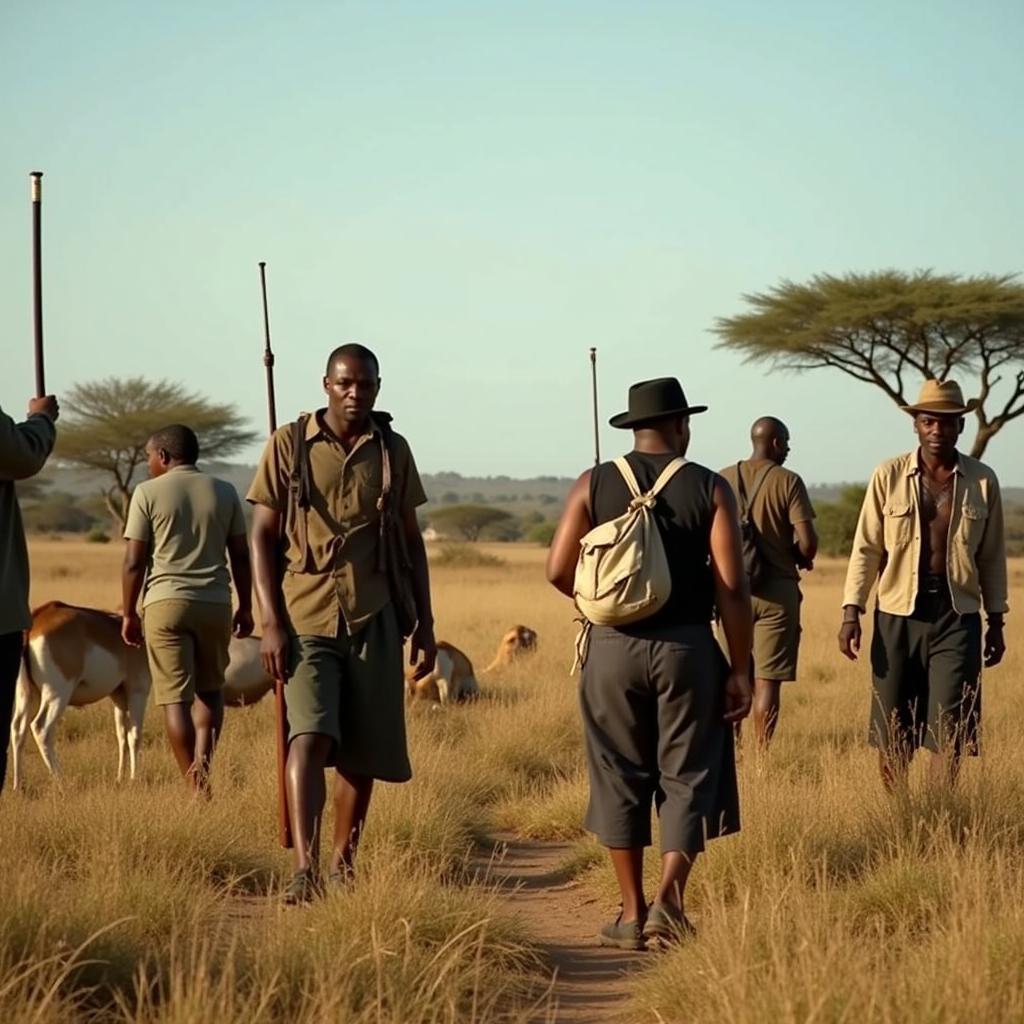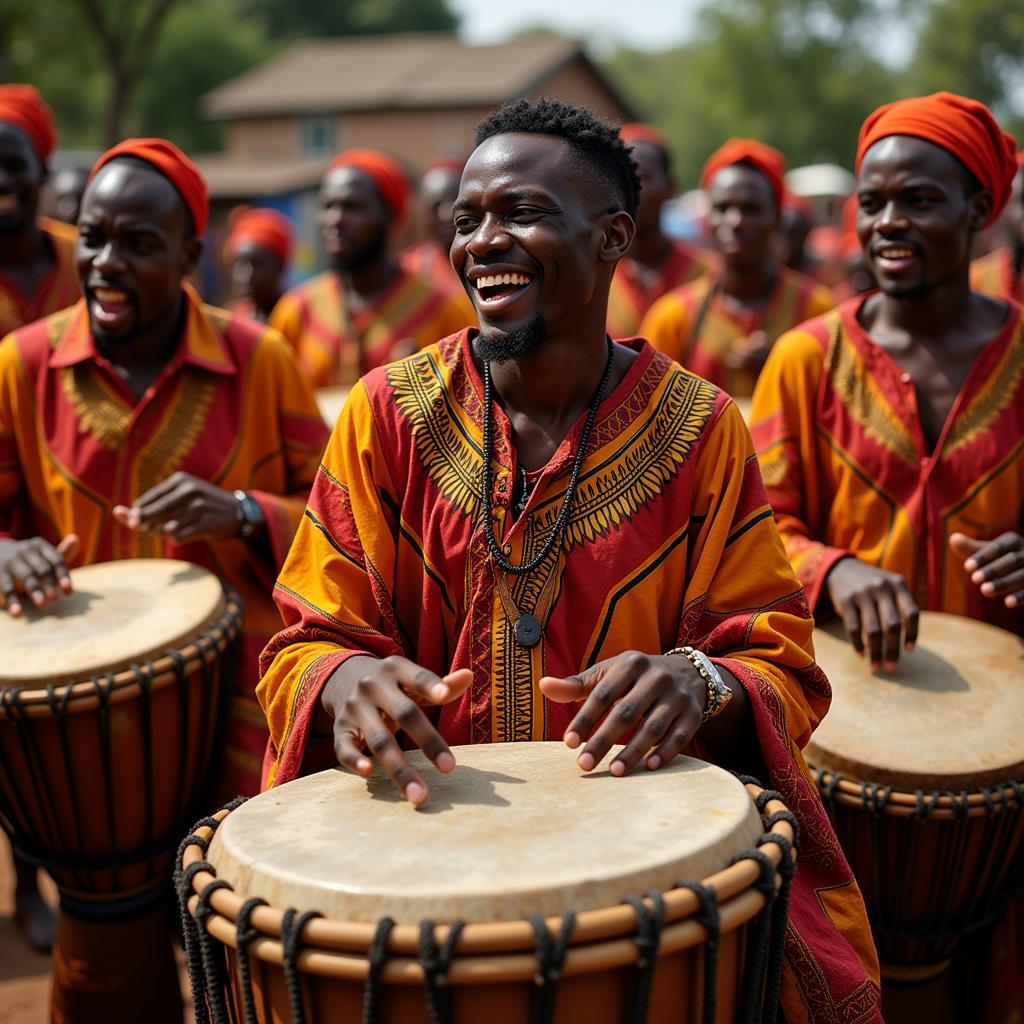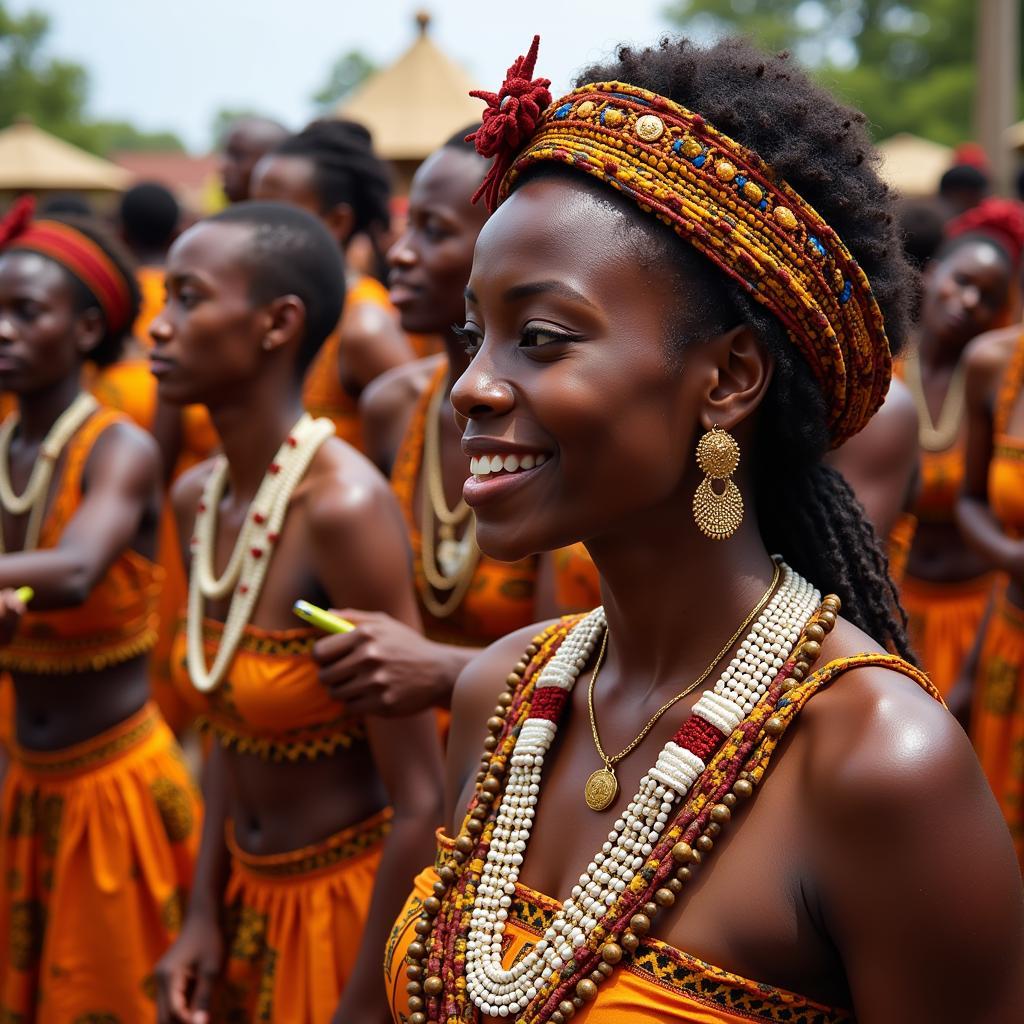The Enduring Power of African Child Movie Narratives
The “African Child Movie” transcends a simple genre; it offers a glimpse into the diverse realities of childhood on a continent brimming with rich cultures and complexities. These films, often poignant and thought-provoking, captivate global audiences while confronting stereotypes and showcasing the resilience of the human spirit.
Beyond the Silver Screen: Understanding the Significance
 Poster for an African Child Movie
Poster for an African Child Movie
While the term “African child movie” might evoke images of poverty and struggle, this generalization overlooks the vast spectrum of narratives that exist. Yes, some films shed light on socioeconomic challenges, highlighting issues like access to education or healthcare disparities. Yet, many others celebrate the joys of childhood, the strength of familial bonds, and the vibrant tapestry of African traditions.
These stories matter. They offer a platform for African voices to be heard, challenging Western cinematic tropes and offering nuanced perspectives often missing from mainstream media. Through the lens of a child’s perspective, audiences connect with universal themes of love, loss, friendship, and the pursuit of dreams.
A Tapestry of Experiences: Exploring Genre Diversity
 Children Playing Traditional Games in Africa
Children Playing Traditional Games in Africa
The beauty of “African child movies” lies in their diversity. From heartwarming coming-of-age stories to captivating tales of adventure, the genre encompasses a wide range of cinematic expressions:
- Drama: Films like “Tsotsi” (South Africa) and “Moolaadé” (Senegal) tackle complex social issues, prompting viewers to confront uncomfortable realities and sparking dialogue around poverty, violence, and gender inequality.
- Comedy: “The Gods Must Be Crazy” (Botswana) and “Aki na Ukwa” (Nigeria) showcase the lighter side of life, employing humor to celebrate cultural quirks and deliver laughter across borders.
- Historical Fiction: Movies like “Sarafina!” (South Africa) and “Hotel Rwanda” (Rwanda) use historical events as a backdrop to explore themes of resilience, courage, and the enduring impact of the past.
These diverse narratives challenge viewers to move beyond preconceived notions and appreciate the multifaceted nature of African storytelling.
The Power of Representation: Why it Matters
For children of African descent worldwide, seeing themselves reflected in cinema holds immense power. Positive representation fosters a sense of belonging, challenges stereotypes, and inspires future generations. When an “African child movie” portrays a young protagonist overcoming adversity and achieving their dreams, it plants seeds of hope and possibility.
Moreover, these films offer a valuable tool for cross-cultural understanding. By providing a window into different ways of life, they foster empathy and break down barriers between communities.
Looking Forward: The Future of African Child Cinema
The rise of streaming platforms and increased global accessibility have opened new avenues for African filmmakers to share their stories. This digital revolution has fueled a surge in independent cinema, allowing for greater creative control and a wider reach for narratives that resonate with diverse audiences.
As we move forward, it’s crucial to support African filmmakers and ensure that these voices continue to be amplified. By embracing the power of “African child movies,” we celebrate the beauty, resilience, and boundless potential that exists within the continent and its people.
Frequently Asked Questions
1. Where can I watch “African child movies” online?
Several streaming platforms, including Netflix, Amazon Prime Video, and YouTube, offer a growing selection of “African child movies.” You can also find independent films and documentaries through platforms like AfriDocs and Vimeo.
2. Are “African child movies” suitable for children of all ages?
The age appropriateness of “African child movies” varies greatly depending on the film’s themes and content. Always check the movie’s rating and parental guidance information before watching it with children.
3. What are some key film festivals that showcase “African child movies”?
Notable film festivals celebrating African cinema include the Pan African Film and Arts Festival (PAFF) in Los Angeles, the Toronto Black Film Festival (TBFF), and the Fespaco film festival in Burkina Faso.
4. How can I support African filmmakers?
You can support African filmmakers by watching their films, attending film festivals, and sharing your favorite movies with others. You can also contribute to organizations that support the development and distribution of African cinema.
5. Are there any resources available for learning more about “African child movies”?
Yes, several online resources provide information on “African child movies.” Websites like Shadow and Act, OkayAfrica, and African Film Festival, Inc. offer reviews, news, and insights into the genre.
Need Further Assistance?
Do you have any more questions about “African child movies” or other aspects of African culture and life? We’re here to help! Contact us at:
Phone Number: +255768904061
Email: kaka.mag@gmail.com
Address: Mbarali DC Mawindi, Kangaga, Tanzania.
Our dedicated customer support team is available 24/7 to assist you.
Explore More:
- Discover the enchanting world of African fable song of the soul.
- Delve into the artistry of the African chess set.
- Learn about the influence of the African American Disney princess.
- Find captivating stories within African American romance movies 2018.
- Explore the charm of African elephant cartoon images.




